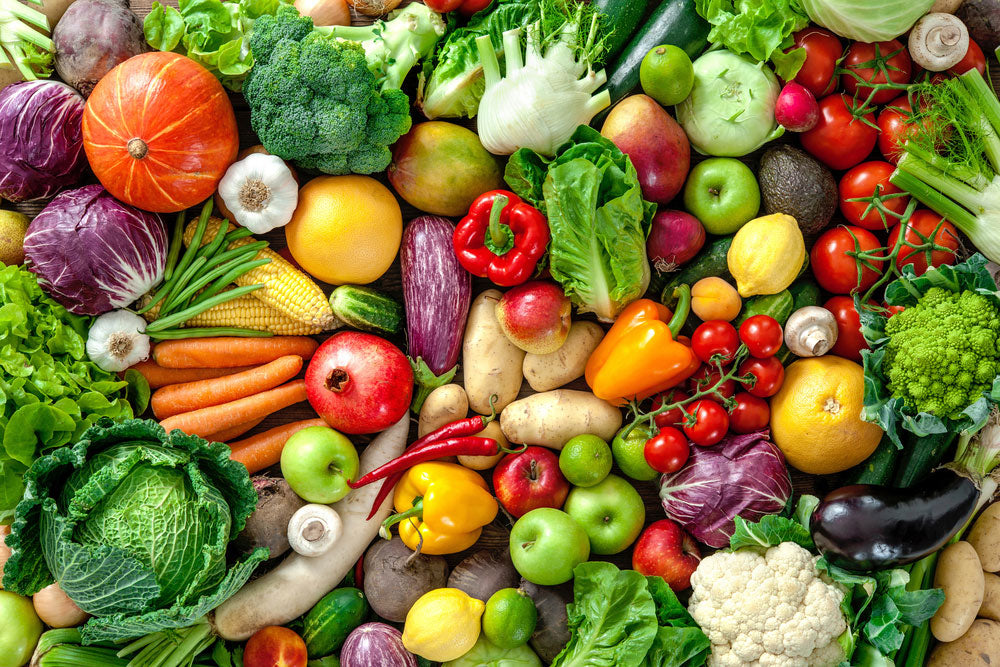
What Happens if You Eat Too Many Veggies?
Eating too many vegetables can have negative effects on your health. If you are eating a vegetarian or vegan diet, it is important to understand the role of vegetables in your digestion so you can portion and supplement intelligently.
We commonly associate a vegetable-dense diet with many health benefits, but the body can only process so many vegetables and nutrients at a time. Heavy vegetable consumption can harm your digestive system, impair your endocrine system, and even lower vitamin D levels. Let’s take a look at how each of these effects occurs.
Too Many Vegetables Can Harm Your Digestive System
Vegetables are rich in fiber, which is necessary for the human body but can cause indigestion and nutrient deficiencies when eaten in excess. When your diet is loaded primarily with vegetables, you might experience gas, constipation, and bloating due to the high fiber concentration.
Additionally, your body can direct its digestive energy toward handling the fiber overload instead of breaking down other consumed nutrients that your body needs to function optimally.
Overeating Vegetables Can Impair Your Endocrine System
The endocrine system consists of a network of glands that secrete and regulate hormones necessary to regulate your bodily functions. Some vegetables trigger inflammation, which interferes with hormone production and secretion, hindering the function of your endocrine system. Tomatoes, peppers, eggplants, and white potatoes are particularly inflammatory, so always eat these veggies in moderation.
Vegetable-Dense Diet Can Lower Your Vitamin D Levels
Vitamin D helps keep bones and muscles strong as it aids the body in processing calcium. Vitamin D deficiency can lead to bone and muscle weakness or aching. Since animal products contain the most naturally occurring source of vitamin D, a vegetable-based diet is almost always vitamin D deficient.
So, can you eat too many vegetables?
Well, like everything in the world, too much of anything can be a bad thing. This cliche extends all the way from processed sugar to our earth’s abundant nutrient supply in vegetables.
And the answer is — yes, you can eat too many vegetables!
Now, we are not suggesting you eliminate veggies from your diet — they’re essential to your health! But be aware of how many you eat, how often, how they’re prepared, and when to cut back.
Low-Vegetable Diet Can Ease Digestive Symptoms
If you are feeling adverse effects of a vegetable-rich diet, experiment with taking a step back from the veggie tray. If you feel better with the cut-back, then keep the new moderate veggie intake. If you don’t feel different, i.e., better, it might not be a problem with vegetables.
Take your health one step at a time, and be patient while you find the diet that’s best for you.
AMP Floracel Can Help
Aloe vera is one of the best ways to naturally protect the belly and digest tract, which improves overall health. Organic aloe vera capsules helps the body digest and absorb nutrients and vitamins, regulates bowel activity, strengthens the digestive tract lining, promotes healthy gut bacteria, and actively prevents bacteria and fungi from colonizing inside the intestines.
While a healthy belly is appealing for increased energy, ideal physical shape, and maximizing the benefits of ingested vitamins and minerals, a clean and supported digestive tract is also imperative to a strong immune system.
Aloe vera contains anti-bacterial, anti-fungal, and antiviral properties, which help cleanse the body of toxins, offer relief to auto-immune symptoms, and increase protection against potentially harmful diseases.
Try our powder or capsule aloe supplements to keep your body health and gut bacteria properly balanced, and boost your immune system. To learn more about our products, reach out to our team at AMP Floracel, and start shopping our products, today.

